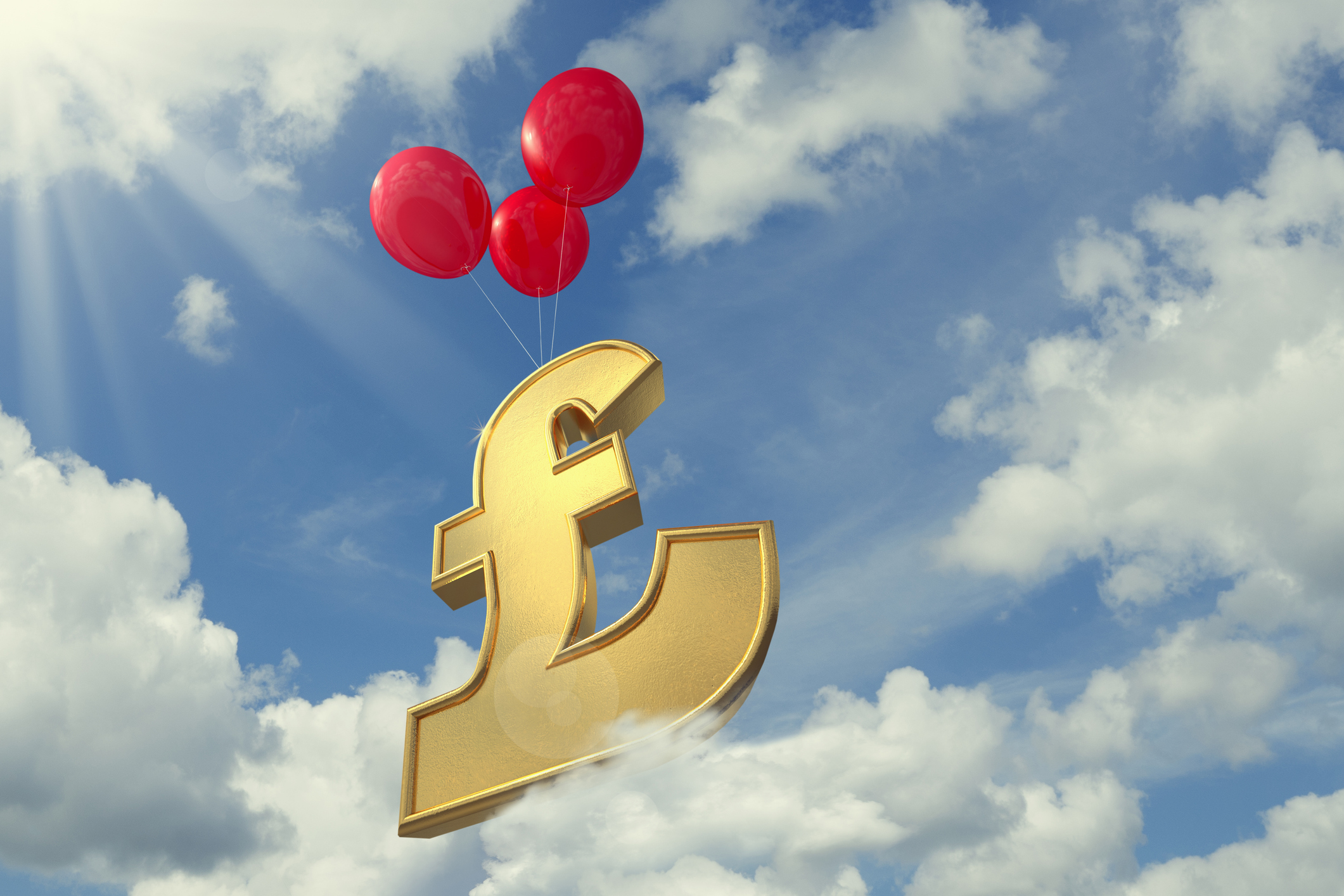Winners and losers from a hard Brexit
Our exit from the EU is likely to be of the hard variety, says Matthew Lynn. Investors should back the industries that will flourish


Get the latest financial news, insights and expert analysis from our award-winning MoneyWeek team, to help you understand what really matters when it comes to your finances.
You are now subscribed
Your newsletter sign-up was successful
Want to add more newsletters?

Twice daily
MoneyWeek
Get the latest financial news, insights and expert analysis from our award-winning MoneyWeek team, to help you understand what really matters when it comes to your finances.

Four times a week
Look After My Bills
Sign up to our free money-saving newsletter, filled with the latest news and expert advice to help you find the best tips and deals for managing your bills. Start saving today!
We don’t yet know what Britain’s trade deal with the EU will look like once the transitional arrangement runs out at the end of this year. One thing is starting to become clear, however: Boris Johnson’s government, with a secure majority in Parliament, will refuse alignment with future EU rules and stick to that position, even if it means that a deal is not possible and we have to trade under WTO rules instead. Big business groups are not going to be happy about that, but it doesn’t make much sense for an economy the size of Britain’s to allow its regulations to be set permanently by an organisation it is not a member of. This creates an opportunity for investors.
The losers
The hit will be taken by any major manufacturing business with supply chains that stretch across Europe. The carmakers will be in trouble (although a few, such as Nissan, may be able to ramp up sales in the UK to make up for it). Rules of origin, tariffs and quotas will mean that logistics freeze up, just-in-time production systems have to be scrapped and tariffs of up to 10% may be faced in some markets. That is going to hurt. Car manufacturers are going to suffer, both in the UK and in Europe, and so will the parts suppliers and dealers who depend on car sales.
Chemicals and drugs makers might get hit and so might clothes, shoes and textiles manufacturers. And there may be losers in financial services if passporting rights for the City are lost as a result of failing to reach a deal: it won’t make a lot of difference to the banks, but fund managers and insurers may find themselves frozen out of lucrative European markets or forced to open units in Paris or Frankfurt.
MoneyWeek
Subscribe to MoneyWeek today and get your first six magazine issues absolutely FREE

Sign up to Money Morning
Don't miss the latest investment and personal finances news, market analysis, plus money-saving tips with our free twice-daily newsletter
Don't miss the latest investment and personal finances news, market analysis, plus money-saving tips with our free twice-daily newsletter
The winners
The losers will do a lot of lobbying and make a lot of noise. But there will also be some big winners if we free ourselves from the rules that come out of Brussels. Such as? First, and most obviously, technology. Over the last decade the EU has pushed through ever-stricter controls on tech companies. It is still hitting them with a constant round of fines and restrictions – a potential ban on facial recognition, a hugely exciting new technology, is just the latest example. That may protect privacy, to some degree, but it also makes it harder for companies and entrepreneurs to innovate. The UK already has the leading tech hub in Europe. With lighter regulations, our tech firms can flourish, as can all the venture-capital houses that put money into them.
Next, finance. Sure, some of the big traditional asset managers and insurers may lose out. But the EU has also been imposing round after round of rules and regulations on finance. The City has always thrived as a global centre of innovation and excellence. From fintech, to cryptocurrencies, to crowd-funding, to financing emerging markets and new technologies, the smaller, nimbler finance firms will find business a lot easier if we set our own distinct rules from the EU.
Thirdly, retailers. True, there may be problems with supply chains. But shops will benefit hugely from being able to source the cheapest goods from around the world. We have been so used to EU quotas and tariffs – 16% on oranges, for example, or 8% on coffee, even though both are remarkably hard to grow in this country – that it will probably come as a surprise when we see how much cheaper products can be bought elsewhere. A round of price cuts may tempt people back into the shops again.
Finally, food production and agriculture. The industry has grown used to EU controls, but they never worked for the UK. We were stuck with a food industry hooked on subsidies and dominated by controls. And yet from lab-grown and substitute meats to vertical farms, agriculture is about to go through a technological revolution. The giant agri-businesses of France and Spain will oppose that fiercely, but freed from their lobbying the UK can pioneer those industries – which makes sense for a country that gave up on self-sufficiency decades ago. Farming will look very different with rules set in the UK, but it will also be a lot more profitable.
Get the latest financial news, insights and expert analysis from our award-winning MoneyWeek team, to help you understand what really matters when it comes to your finances.

Matthew Lynn is a columnist for Bloomberg and writes weekly commentary syndicated in papers such as the Daily Telegraph, Die Welt, the Sydney Morning Herald, the South China Morning Post and the Miami Herald. He is also an associate editor of Spectator Business, and a regular contributor to The Spectator. Before that, he worked for the business section of the Sunday Times for ten years.
-
 How a ‘great view’ from your home can boost its value by 35%
How a ‘great view’ from your home can boost its value by 35%A house that comes with a picturesque backdrop could add tens of thousands of pounds to its asking price – but how does each region compare?
-
 What is a care fees annuity and how much does it cost?
What is a care fees annuity and how much does it cost?How we will be cared for in our later years – and how much we are willing to pay for it – are conversations best had as early as possible. One option to cover the cost is a care fees annuity. We look at the pros and cons.
-
 No peace dividend in Trump's Ukraine plan
No peace dividend in Trump's Ukraine planOpinion An end to fighting in Ukraine will hurt defence shares in the short term, but the boom is likely to continue given US isolationism, says Matthew Lynn
-
 Europe’s new single stock market is no panacea
Europe’s new single stock market is no panaceaOpinion It is hard to see how a single European stock exchange will fix anything. Friedrich Merz is trying his hand at a failed strategy, says Matthew Lynn
-
 UK wages grow at a record pace
UK wages grow at a record paceThe latest UK wages data will add pressure on the BoE to push interest rates even higher.
-
 Trapped in a time of zombie government
Trapped in a time of zombie governmentIt’s not just companies that are eking out an existence, says Max King. The state is in the twilight zone too.
-
 America is in deep denial over debt
America is in deep denial over debtThe downgrade in America’s credit rating was much criticised by the US government, says Alex Rankine. But was it a long time coming?
-
 UK economy avoids stagnation with surprise growth
UK economy avoids stagnation with surprise growthGross domestic product increased by 0.2% in the second quarter and by 0.5% in June
-
 Bank of England raises interest rates to 5.25%
Bank of England raises interest rates to 5.25%The Bank has hiked rates from 5% to 5.25%, marking the 14th increase in a row. We explain what it means for savers and homeowners - and whether more rate rises are on the horizon
-
 Britain’s inflation problem
Britain’s inflation problemInflation in the UK appears to be remaining higher for longer when compared with similar rich countries. Why? And when can we expect a return to normal? Simon Wilson reports.